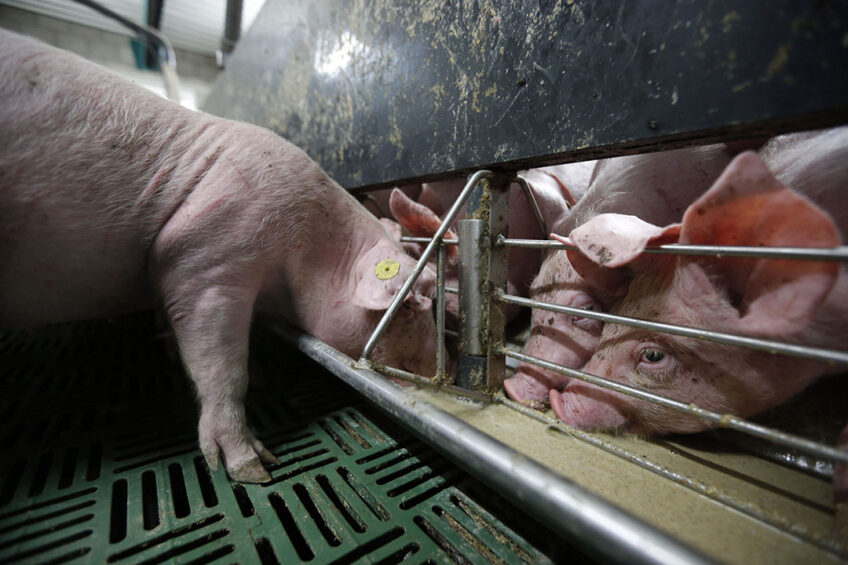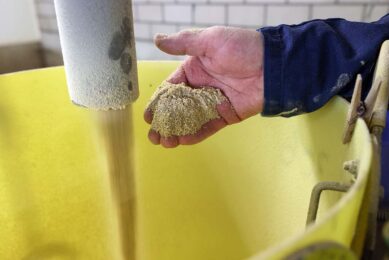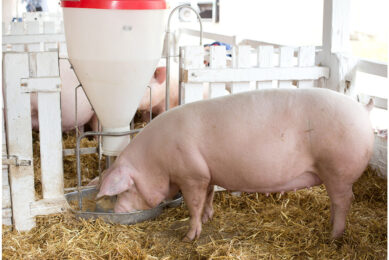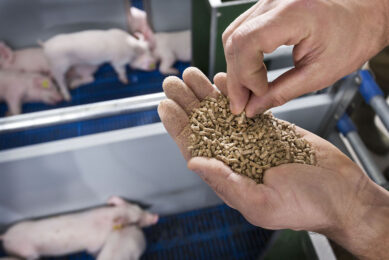The future is now: functional nutrition for pigs

A pig is much more than a creature that needs a roof, feeding and a good health. After all, everything always influences the other. Good nutrition can be a prerequisite for good health – to such a degree that health issues may be prevented. Swine nutrition technology expert Dr Casey Bradley explains more about “functional nutrition”.
My curiosity and thirst for knowledge at times sends me down endless rabbit holes for the exact answer I am after. Recently I have had several conversations on the current situation in the medical field and the verge a new age doctor and type of practice. Ultimately it is not new age but going back to traditional family doctor that you had all your life while combining ancient and modern technologies to create a holistic approach to health.
Dietary solutions for behavioural problems
As many of my avid followers know my son Arthur was born premature (29.5 weeks of gestation) and has faced early health challenges and developmental delays. Now he is a kindergartner we are facing other behavioural and transitionary challenges. Traditional medicine wants me to use an off-label generic blood pressure medicine to control his “mood swings,” but my training has sent me down the path of functional nutrition and implementing concepts like the “Feingold diet.”
The need for continuous nutritional monitoring
But what does this have to do with swine nutrition? Where there are some key elements that we have yet or inconsistently incorporate into our nutritional programmes:
- Comprehensive understanding of the medical, nutritional, and biological history of the animal;
- Consistent and continuous nutritional and biological monitoring.
There is mounting evidence in the scientific literature that support an individual’s metabolomics are influenced as far back as their grandparents’ nutritional and/or medical history. Yet, for example, we may alter the feed budget for a weaned pig based on average wean weight but doubtful as we are more concerned with filling the delivery truck. There is even mounting evidence to support higher levels of soybean meal in weaned pig diets under a disease challenge, such as PRRS, but when we hit optimise in our formulation systems it spits out the cheapest diet.
Becoming a swine functional nutritionist
Let’s take it a step further, we are consistently monitoring oral fluids, blood, and/or necropsies for disease monitoring, but I am unaware of anyone monitoring nutrient levels in their animals unless we have a case of mulberry heart disease or broken bones. Let alone combining the silos of data we have from production, the feed mill, and veterinarian diagnostics to become a functional nutritionist for the swine industry.
Genetics has been able to improve number of piglets born alive, ADG, and FCR within our herds but has not been able to touch mortality. We are maybe able to get more pigs out of a sow, but I doubt we are getting many more pigs to market. A system with 28 pigs/sow/year (PSY) with a 5% wean-to-market versus a system with 30 PSY and a 10% wean-to-market mortality are putting just about the same number of animals on the rail. But the industry seems to have become comfortable with the fact that we lose 20-30% of our pigs over the production cycle.
Sensors, cameras and apps in pig houses
Furthermore, the future seems just around the corner for the use of artificial intelligence (AI) and technology in the barns that include sensors, cameras, and cool employee optimisation apps. But we are limited to hand-held near-infrared spectroscopy (NIRs) and in-line NIRs for the nutritional space today.
To truly make functional nutritional programmes for our swine herds it is also going to take all parties to share data and discuss the path forward? Are you ready to join me in revolutionising how we think of nutrition and health today for the swine industry?
Or will you stay in the camp and prescribe Arthur the generic off label blood pressure medicine that could have multi-generational impacts?
 Beheer
Beheer








 WP Admin
WP Admin  Bewerk bericht
Bewerk bericht